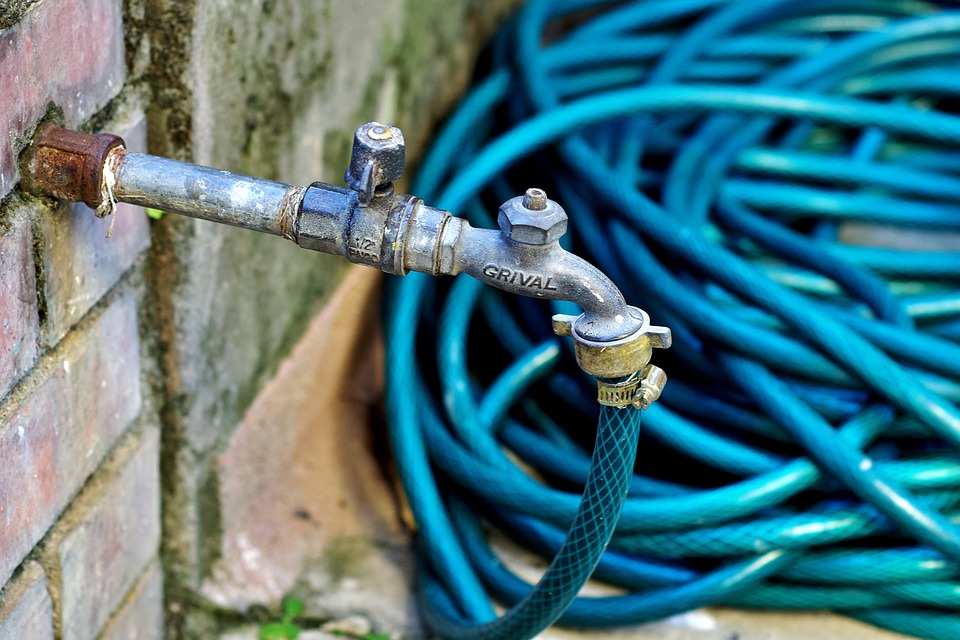Hosepipe ban
Contents |
[edit] Introduction
Water is an increasingly scarce resource. As population increases, and climate change makes rainwater patterns less predictable, it is becoming more important that we reduce the amount of water that we consume and discharge into the sewerage infrastructure.
When the availability of water approaches insufficient levels, it is sometimes necessary for restrictions to be placed on customers. This most commonly occurs during periods of drought, but restrictions can also be put in place if fresh water reserves (or reservoirs) become contaminated due to some type of accident.
In the UK, these restrictions are commonly referred to as 'hosepipe bans'. These bans typically prevent the use of hoses, sprinklers or sprinkler systems for watering gardens and lawns. The bans also apply to the use of a hosepipe for washing automobiles or other situations where hoses are left turned on and unattended.
Hosepipe bans are typically put in place by local water companies. However, they can sometimes be imposed across entire regions based on resource levels in the area.
[edit] History
While water usage has been the source of conflict for centuries, it was the droughts and shortages of the 1890s that resulted in action to control the supply of water. The formation of the East London Waterworks Company was a result of this activity, although the company was not particularly successful in responding to the crisis.
In the 1920s and early 1930s severe drought triggered additional measures to control the wasteful use of water, including activities that could result in fines for offenders.
[edit] Modern water regulations
The Water Industry Act 1991 brought about more significant restrictions and penalties on water usage. The formal introduction of the hosepipe ban was contained in section 76 of the 1991 Act, which has since been expanded in section 36 of the Flood and Water Management Act 2010.
Under the Flood and Water Management Act 2010 activities that can be banned include:
- Watering a garden.
- Washing a private car.
- Watering plants on non-commercial property.
- Washing a private leisure boat.
- Filling a domestic swimming pool, pond or ornamental fountain.
- Washing domestic walls, windows, paths or patios.
- Drawing water for domestic recreational use.
- Cleaning other artificial outdoor surfaces.
Water companies can impose a ban or can apply to the government for a drought order. An ordinary drought order limits the use of water for specific activities, while an emergency drought order limits the supply of water and makes alternative arrangements for the supply of water, for example by erecting stand pipes.
[edit] Related articles on Designing Buildings Wiki
Featured articles and news
The benefits of engaging with insulation manufacturers
When considering ground floor constructions.
Lighting Industry endorses Blueprint for Electrification
The Lighting Industry Association fully supports the ECA Blueprint as a timely, urgent call to action.
BSRIA Sentinel Clerk of Works Training Case Study
Strengthening expertise to enhance service delivery with integrated cutting-edge industry knowledge.
Impact report from the Supply Chain Sustainability School
Free sustainability skills, training and support delivered to thousands of UK companies to help cut carbon.
The Building Safety Forum at the Installershow 2025
With speakers confirmed for 24 June as part of Building Safety Week.
The UK’s largest air pollution campaign.
Future Homes Standard, now includes solar, but what else?
Will the new standard, due to in the Autumn, go far enough in terms of performance ?
BSRIA Briefing: Cleaner Air, Better tomorrow
A look back at issues relating to inside and outside air quality, discussed during the BSRIA briefing in 2023.
Restoring Abbotsford's hothouse
Bringing the writer Walter Scott's garden to life.
Reflections on the spending review with CIAT.
Retired firefighter cycles world to raise Grenfell funds
Leaving on 14 June 2025 Stephen will raise money for youth and schools through the Grenfell Foundation.
Key points for construction at a glance with industry reactions.
Functionality, visibility and sustainability
The simpler approach to specification.
Architects, architecture, buildings, and inspiration in film
The close ties between makers and the movies, with our long list of suggested viewing.
SELECT three-point plan for action issued to MSPs
Call for Scottish regulation, green skills and recognition of electrotechnical industry as part of a manifesto for Scottish Parliamentary elections.
UCEM becomes the University of the Built Environment
Major milestone in its 106-year history, follows recent merger with London School of Architecture (LSE).
Professional practical experience for Architects in training
The long process to transform the nature of education and professional practical experience in the Architecture profession following recent reports.























